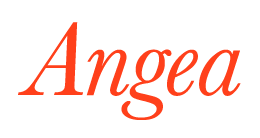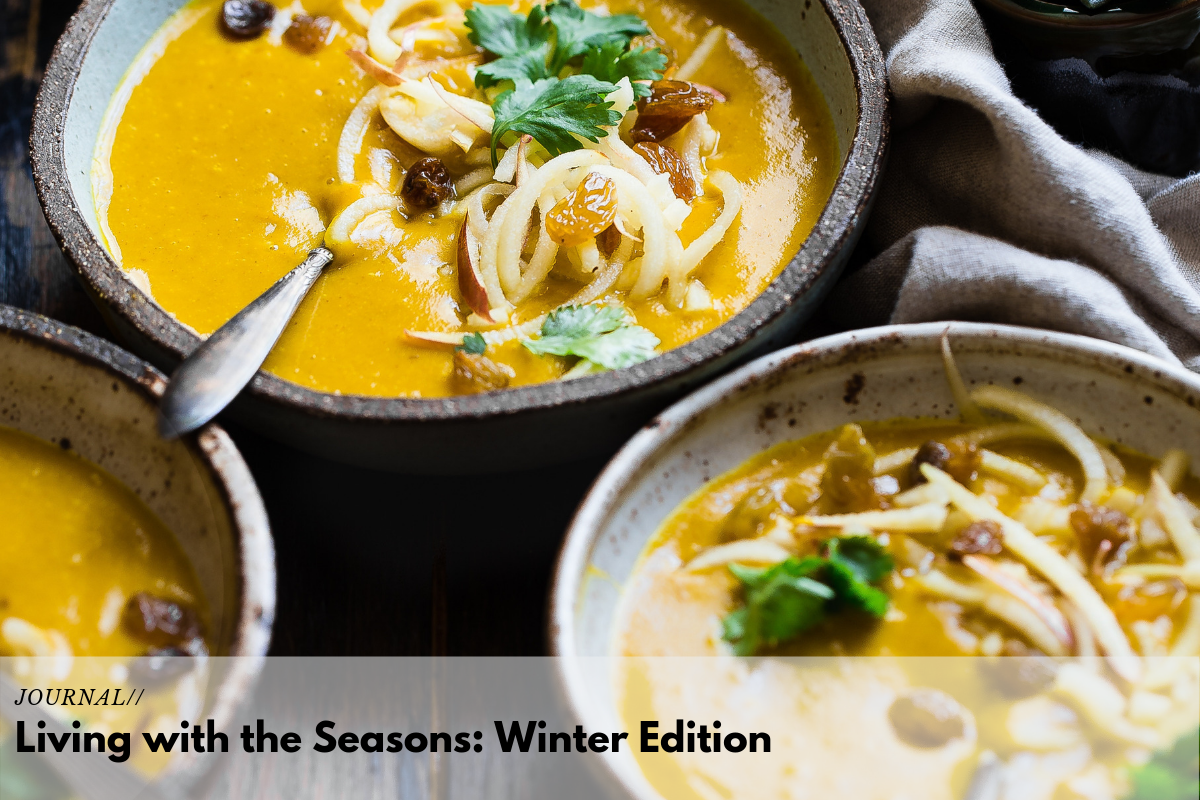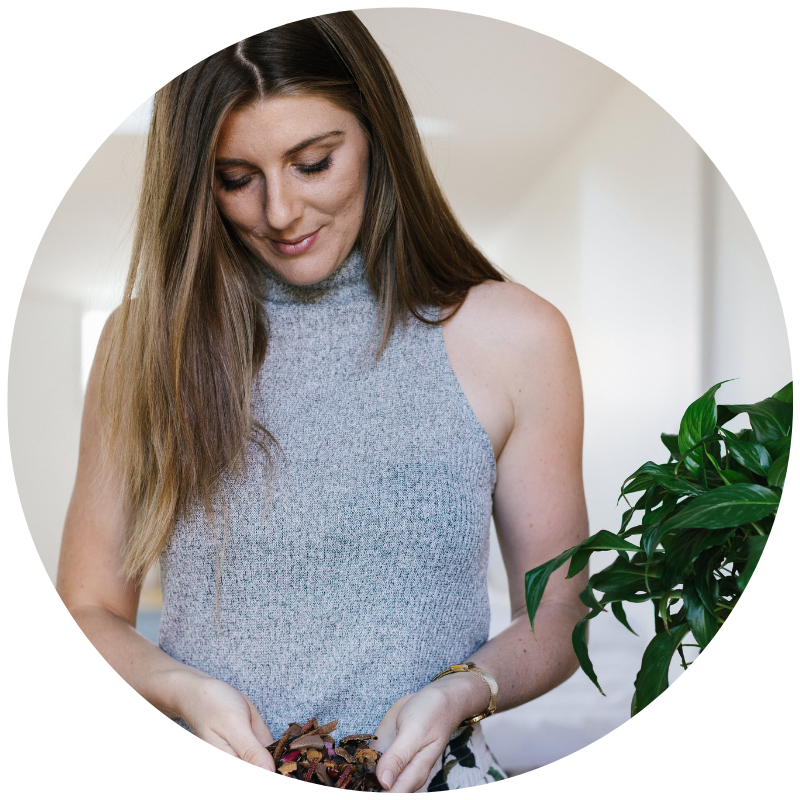In Chinese culture, living with the seasons is a concept that is integrated into daily life. In fact, it is not only Chinese culture that promotes a symbiotic approach with nature, Australia’s indigenous people and India’s ayurvedic traditions both understand the benefits of living in mother nature’s tune. There’s an inherent wisdom that lies in living with the seasons as you surrender to the ebbs and flows of life. Living with the seasons may require subtle shifts or big changes in your diet, exercise, mindfulness and sleep. It also includes what you wear and the rituals you practice.
If you want to find out more about living with the seasons, join us on June 23 for our Winter Solstice event for an afternoon of yoga, meditation, sound healing, acupuncture and reiki. Buy tickets.
Diet
Winter is a time to nourish your spleen and stomach. Your middle jiao is attributed to digestion in Chinese medicine and it loves to be kept warm. They say the stomach is a simmering cauldron, and when we eat cold or raw foods we are putting the fire that fuels the cauldron out. Essentially, if we eat cold or raw foods we’re asking our bodies to work harder for less! Don’t get me wrong, I love smoothies and salads but let’s make a collective agreement to hold these off until summer. Winter calls for broths, soups and winter stews. For added benefits, include cold grown, locally sourced vegetables like cabbage, cauliflower, broccoli and kale to your soups!
Exercise
Exercise is fantastic at warming up your meridians and stimulating the flow of qi throughout your body. You may want to include more heated vinyasa or a pilates reformer class into your week to warm up your meridians and keep the smooth flow of qi on winter mornings. Yes, high intensity forms of exercise will also awaken your channels, however, while you smash your body, be mindful you may also be smashing your adrenals. Winter is also a time for juicy yin yoga and soothing qigong practices. Yin yoga supports your deep connective tissue and joints which we know can become stiff during the colder months. A year round qigong practice can supplement your jing as you accumulate the yang energy during summer that you can then draw on in winter.
Mindset
Winter is a time for reflection as your body enters hibernation to prepare itself for spring and summer. As winter falls in the middle of the year in Australia, I use this time as an opportunity to reflect on my goals for the year, and how I have been tracking so far. I tend to ask myself three questions that gently steer me in the direction needed to navigate my goals.
- What is something I can start in order to increase my chance of reaching my goals?
- What is something I am doing right now that is not contributing to my goals?
- What is something I am currently doing that is working for me to achieve my goals?
Sleep
In Winter the days are shorter, and the temperatures are cooler. In Daoist tradition, during Winter one should not rise until the sun’s rays are up. For us Melburnians, this means 7:30am, which for many of us is an impossible feat. Counteract this by getting to bed early and getting eight hours a night.
Clothing
In traditional Chinese medicine it is said that cold enters the body via our Yongquan acupuncture point located on the soles of our feet. This is your cue to wear warm woolen socks and make sure your feet are warm and covered at all times, including when you’re indoors. As winter is an opportune time for colds and flus, and in Chinese medicine, it is said that pathogens enter via the nape of the neck, it’s also important to ensure your neck is properly covered, especially if you’re out in the wind. This is your permission to stock up on merino wool turtlenecks and scarves, ladies.
Ritual
We love rituals that recognise the change of seasons. In some parts of China this is celebrated by eating dumplings, but at Angea, we prefer to keep things a little more mindful. Join us on June 23 as we celebrate the Winter Solstice. The Winter Solstice represents the shortest day of the year as the yin energy of winter dwindles and we welcome in the surging yang energy of summer. This year our celebration involves an afternoon of women’s healing, including yin yoga, reiki, acupuncture, sound bath and meditation. Led by Dr Amanda Waaldyk, Angea’s founder and principal practitioner, this promises to be an afternoon of ultimate cultivation. Buy tickets.
Michelle is a Melbourne-based yoga and meditation teacher and student of Chinese Medicine. When Michelle isn’t guiding yogi’s through juicy slow flows, or hand blending the Angea Organic Wellness Tea range, you’ll find her tucked into a book in one of Melbourne’s beautiful outdoor parks.


